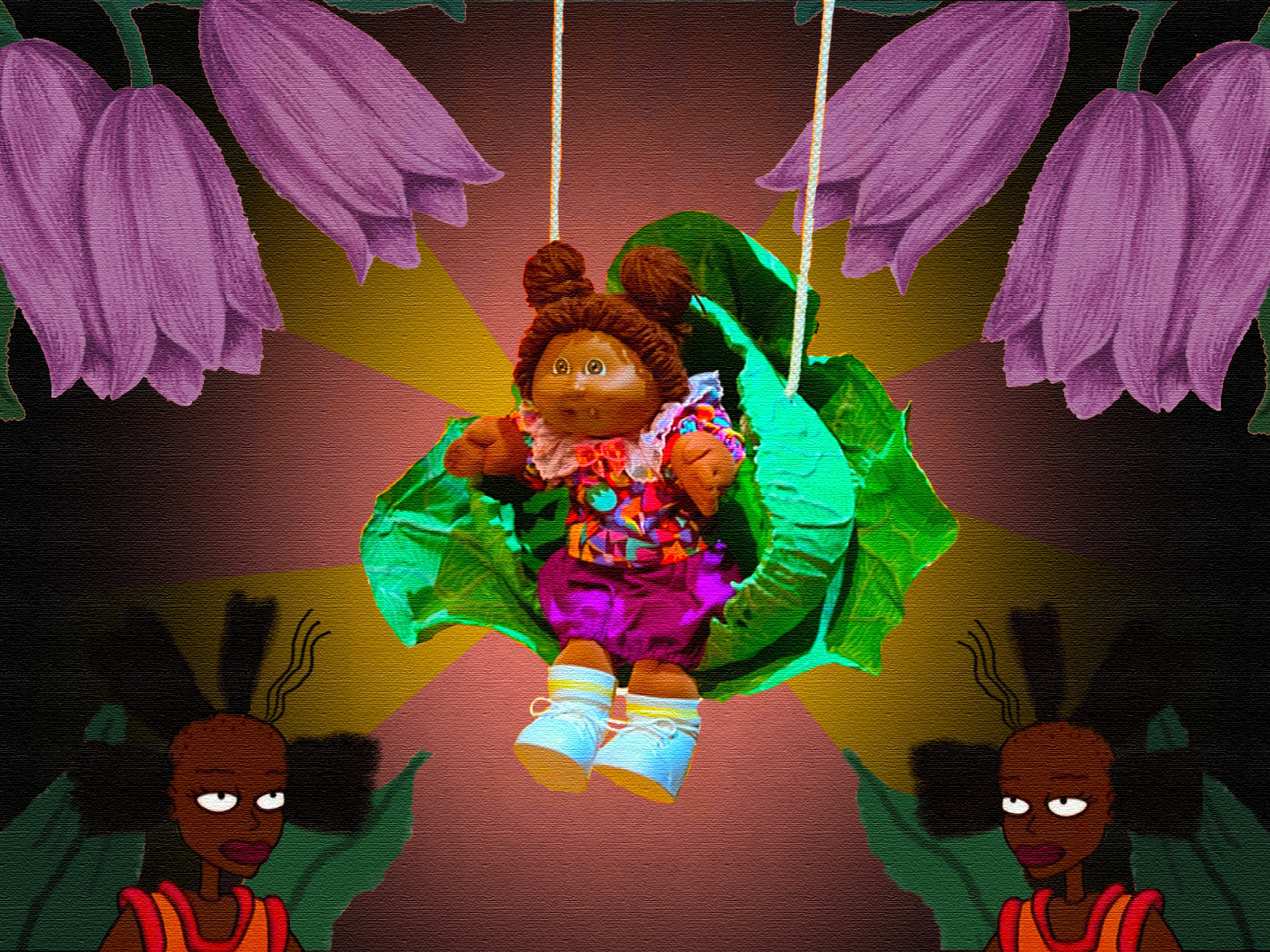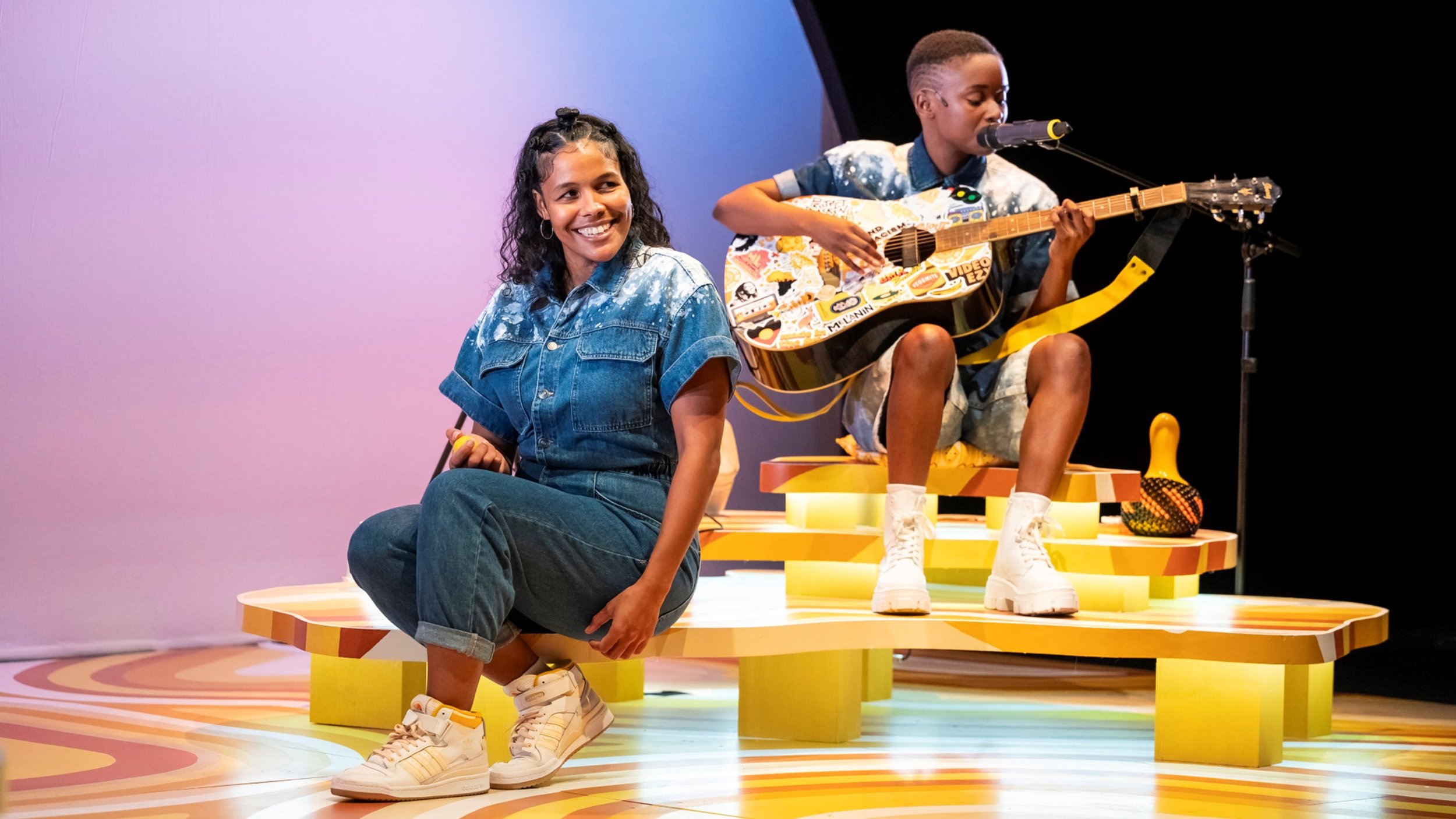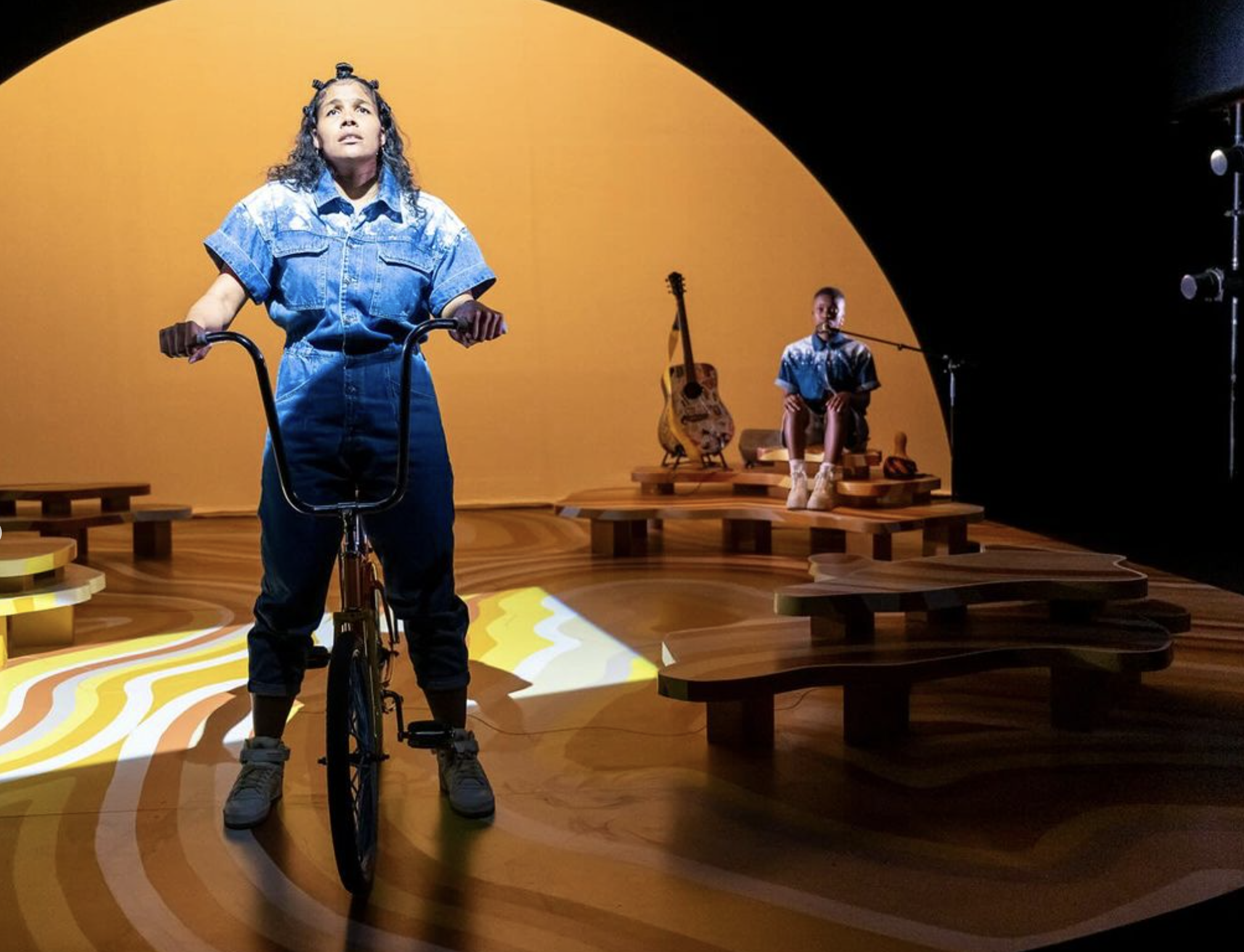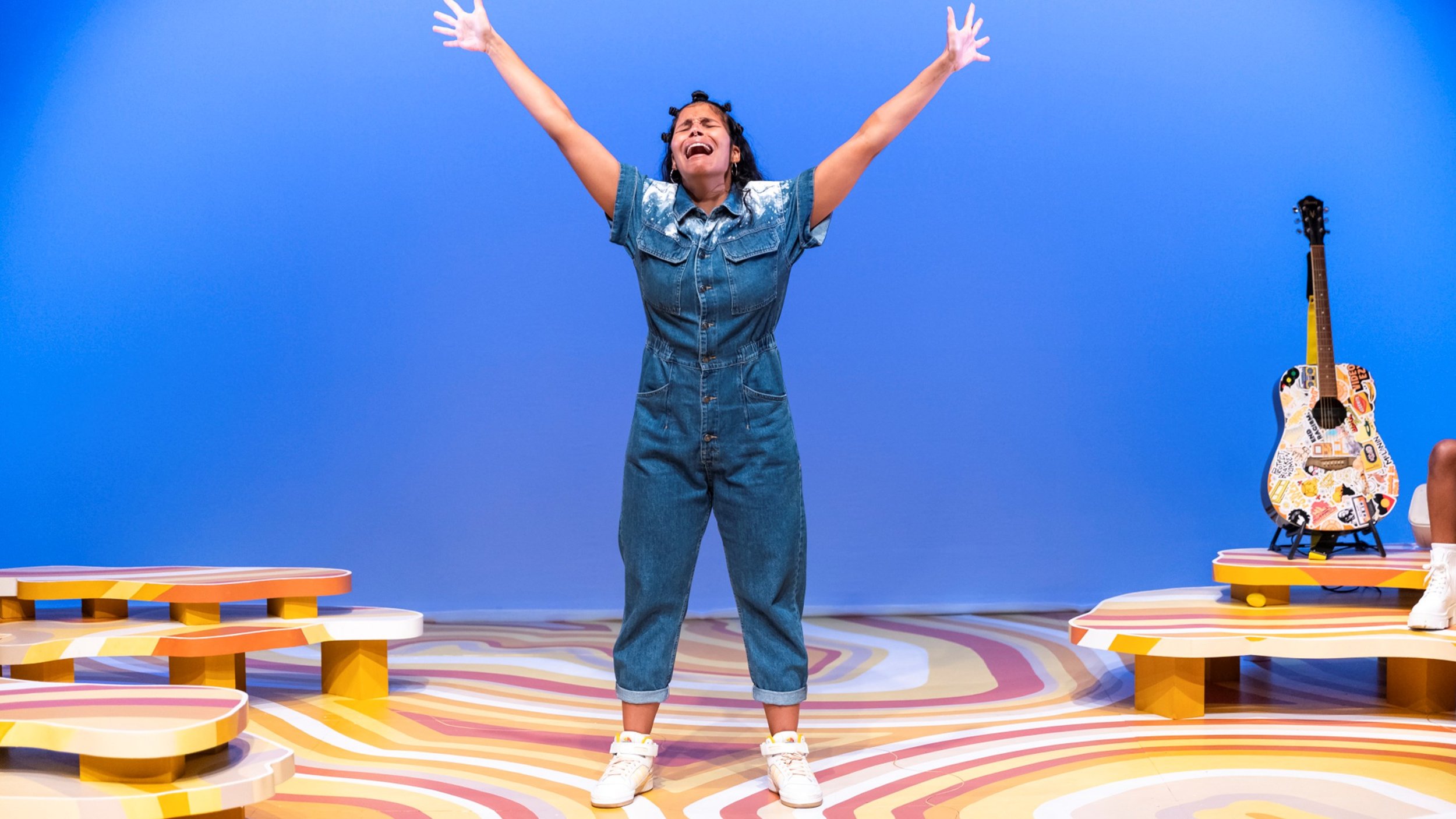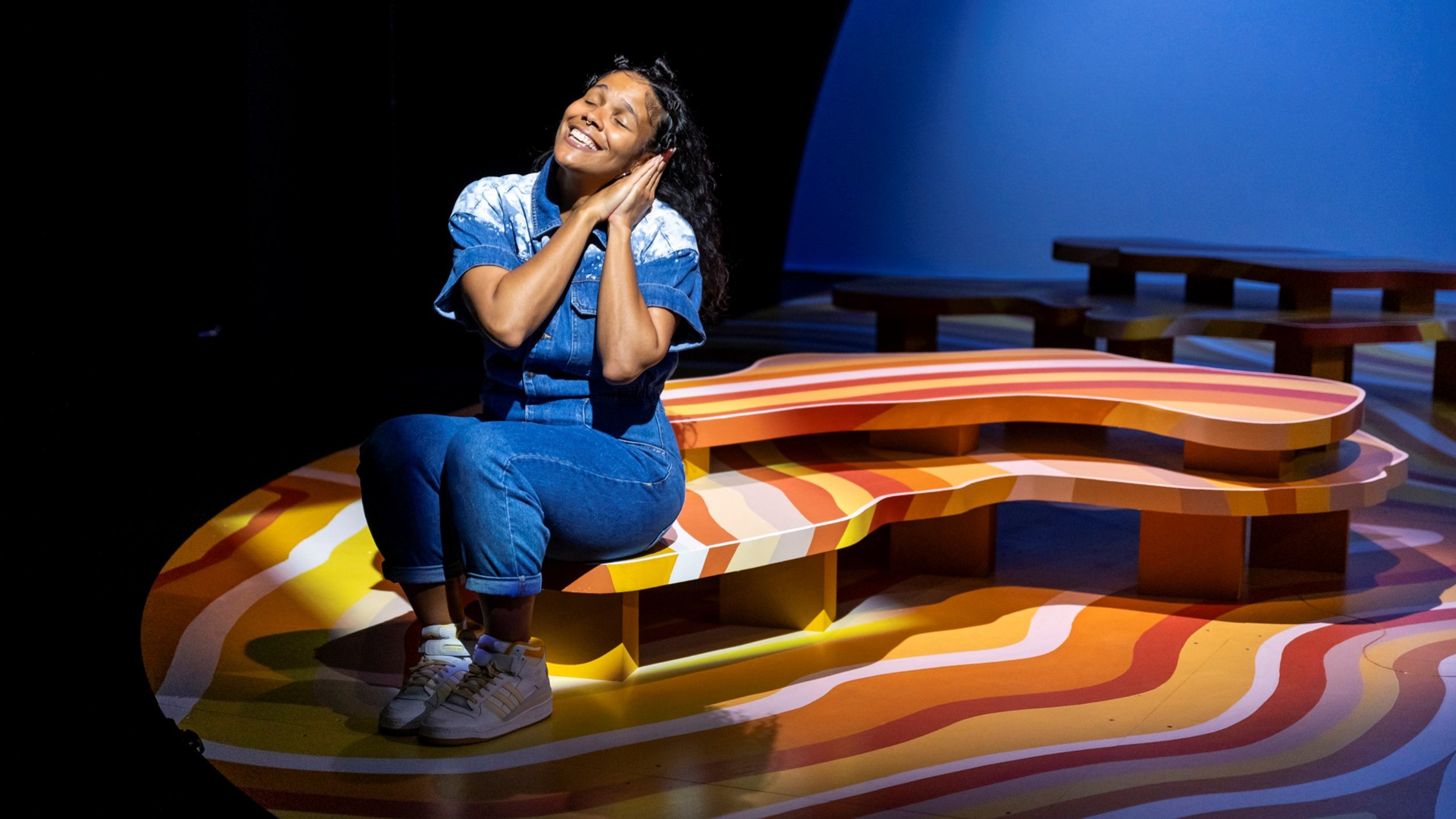We were planted here, and we have a story to tell— The Hate Race review.
“The Hate Race stands as a profound exploration of the intergenerational struggle faced by Black and brown parents, tasked not only with survival, but searching for belonging and acceptance.” - Kalida Edwards reviews The Hate Race for MAV.
Collage artwork by MAV. Image of Cabbage Patch Doll from The Malthouse Theatre’s production of The Hate Race (23 Feb - 17 Mar 2024). Written by Maxine Beneba Clarke, the production starred Zahra Newman and Kuda Mapeza. Co-directed by Tariro Mavondo and Courtney Stewart. Production design by Zoë Rouse.
Through personal anecdotes, The Hate Race exposes the insidious nature of racism and vividly illustrates the impact of micro-aggressions – from insensitive comments about perceived lack of attractiveness, to the violation of personal space, such as unwarranted touching of hair. Writer Maxine Beneba-Clarke highlights the toll the experiences take on one’s sense of self. We begin to question ourselves. Why must I look different? Am I too sensitive? Am I permitted to have these feelings?
Zahra Newman’s performance as Maxine is a masterclass in embodying the complexities of childhood innocence, her father’s masculinity, her mother’s strength, and her own sheer exhaustion. Her portrayal, enhanced by a remarkable range of accents, provides an immersive experience underscoring the story’s movement across generations. Her gentle strength becomes an invitation to acknowledge that there is a need for us to be understood, and embraced in our struggles.
Kuda Mapeza’s stunning, sweet vocals add another layer of emotional resonance against a backdrop of devastation, interweaving seamlessly with Newman's Maxine, and punctuating the narrative with both beauty and humour. Mapeza’s voice becomes a powerful instrument, a healing balm, echoing the resilience and vitality of a community navigating the challenges of cultural assimilation.
The Hate Race stands as a profound exploration of the intergenerational struggle faced by Black and brown parents, tasked not only with survival, but searching for belonging and acceptance. All the while, the desire to retain culture is inviolable. They must parent in a way that ensures we do not forget our heritage, our music, our cultural dishes. As we, their children, become affected and othered, they are tasked with instilling pride, joy, and music into a grey world, hoping that we remerge with pride.
Suburban Australia, home to thousands of people with Afro-Caribbean heritage, is the setting of Beneba-Clarke’s narrative. She exposes the gaps in our cultural safety. The urgent need for conversations around identity, belonging, and cultural acceptance is palpable. When our culture is contingent on talking, sharing, communing, anglo-Australians' refusal to acknowledge is jarring. This is evident in Maxine’s dismissal by her teachers and peers. This silence is an extension of the intergenerational violence of colonisation. It is ignorance, and complicity.
The lasting scares of prejudiced assumptions are poignantly expressed, revealing how these encounters become ingrained in the psyche. They shape identity, influence self-perception, affect how one holds themselves in the world. The desperation to conform to Eurocentric standards of beauty is laid bare. Reflecting on Maxine's journey brings to mind a personal anecdote.
I am reminded of my own attempts to straighten my 4C hair – a symbolic act of attempting to erase my own natural essence, burning a part of me that only needed conditioner, nourishment, protection. Aware that my hair would take hours to air-dry, impatience drove me to crank the straightener up to its maximum temperature. Crude sections of the front of my hair were the first to be subjected to heated clamps. I persisted, watching as steam rose with each pass. The smell of my hair burning lingered in the air, and the end result was a spectacle – my hair, straight as a board, jutting out horizontally like Cynthia's hair in the Rugrats cartoon. I furiously smoothed my hair down and captured a single photo in the mirror, to post to MySpace. Beneba-Clarke’s narrative awakened a memory I had replayed in my mind, and it is as if she gave me permission to rummage around in it.
The Hate Race is ultimately a celebration of colour in the face of adversity, and it resonates as a powerful call to action. It is more than a performance; it is a visceral exploration of resilience, resistance, and the journey toward self-acceptance, particularly for those of us with marginalised backgrounds. It invites the audience to confront uncomfortable truths, and challenges Australian society to move beyond complacency, as is the Australian way. Beneba-Clarke’s emotional and thought-provoking memoir brings to life the urgency for collective introspection and societal change. The Afro-Centric design of the set ensures that we do not forget the legacy of colonisation in ripping the African diaspora from its homeland. We were planted here, and we have a story to tell.
MAV was proud to partner with the Malthouse Theatre’s community program Labrish, for the season of The Hate Race. A theatrical adaptation of Maxine Beneba Clarke’s best-selling memoir. Labrish was an activation of workshops and musical spoken word events with the intention to elevate community, provide mental health resources and access discounted tickets for those who identify as Black, Indigenous, Person of Colour or as an underrepresented creative.
Related links:

